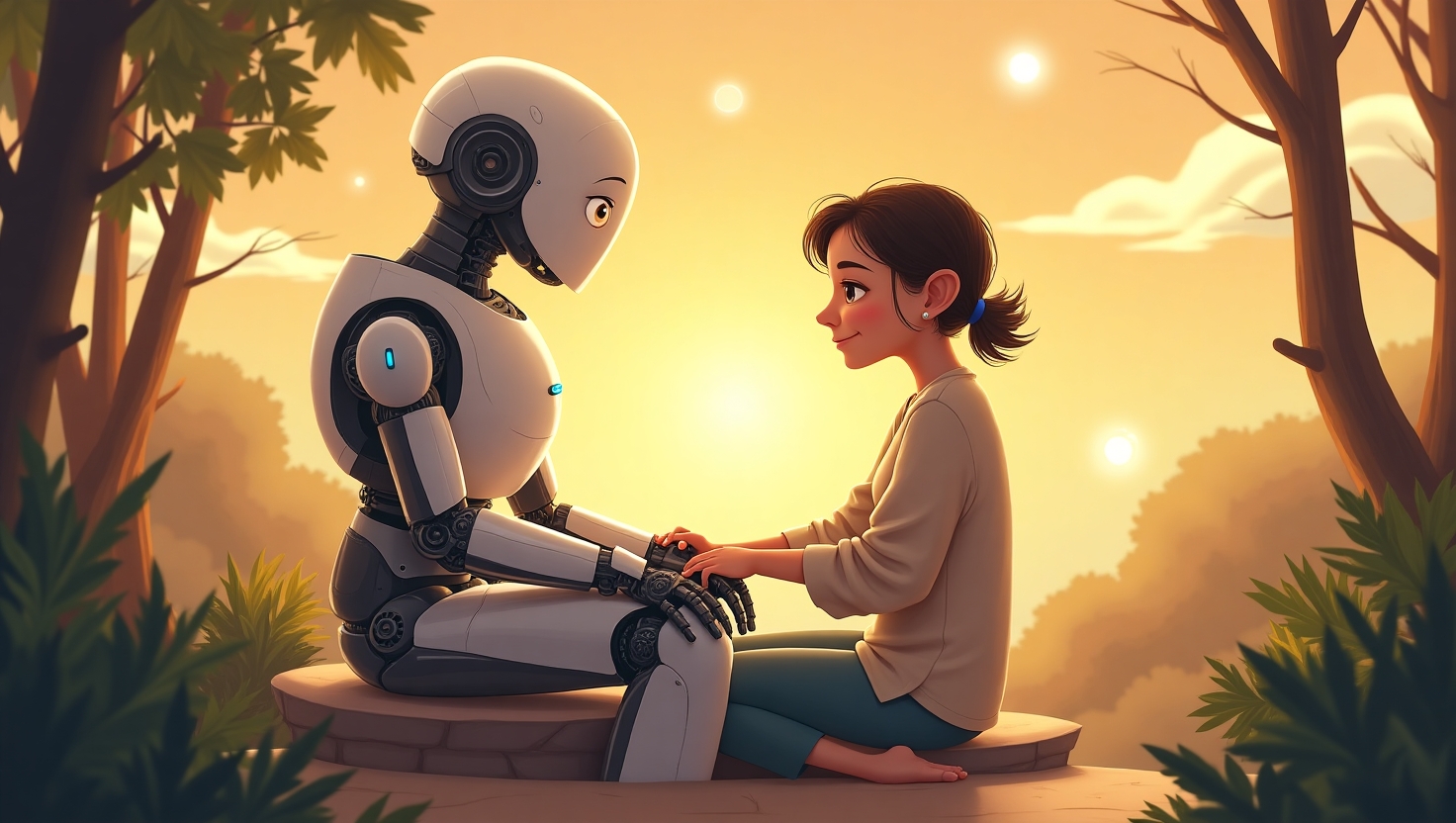AI Companion: The Future of Human-AI Relationships
Introduction
In recent years, the notion of companionship has undergone a paradigmatic shift, thanks to the integration of artificial intelligence (AI) into everyday life. An AI companion is a digital entity designed to perform tasks ranging from casual interlocution to more complex emotional support systems. These AI applications serve various purposes, from alleviating loneliness to enhancing mental well-being, bridging the gap in human-AI relationships. Today, as these technologies evolve, they redefine companionship not just as a human experience but as a cooperative endeavor between humans and digital entities.
Background
The development of AI companionship technologies has been swift and impactful. The journey began with simple chatbots but has now matured into advanced platforms that pair machine learning with real-time emotional analytics. Health technology advancements have significantly influenced this growth, allowing AI companions to play roles once reserved for human counterparts, such as providing emotional validation and informal counseling—a practice increasingly seen within the realm of digital companionship.
One notable pioneer in this space is Portola with their app, Tolan. This application is crafted to promote real-life human interactions while minimizing the risk of users anthropomorphizing their digital companions. Tolan’s framework encourages users to utilize the AI as a facilitative tool rather than a direct replacement for human interaction. This innovative approach represents a significant milestone in how digital companionship technologies operate and are perceived (source: Wired).
Trend
Current trends indicate a growing user engagement with AI companions, backed by increasing evidence of their positive effects on mental health and well-being. The Tolan app exemplifies this trend, with over 100,000 active users yielding annual revenues nearing $12 million. This growth is indicative of broader societal acceptance of AI companions, especially in therapeutic and self-care contexts (source: Wired).
Statistics reflect user experiences that speak volumes about these technologies’ potential. A reported 72.5% of Tolan users acknowledged improvements in their personal relationships, illustrating AI’s capability to provide significant interpersonal support. This aligns with the broader acceptance of AI in health technology, where users increasingly rely on digital companions as an integral part of their emotional support network.
Insight
As AI companions become more sophisticated, their role in personal and social dynamics warrants deeper examination. The human-AI relationship often blurs the line between technology and empathy, raising questions about dependency and the true nature of companionship. While AI companions offer substantial benefits, emphasizing real-life interactions is paramount to prevent social isolation masked by digital presence.
From a sociological perspective, societal perceptions about digital companionship are varied. While some embrace these technologies for their potential health benefits, others express concerns about over-reliance on AI. Encouraging the perception of AI as a tool rather than a substitute for human connections could mitigate these concerns, enhancing societal acceptance.
Forecast
Looking ahead, the future of AI companions is poised for monumental growth within health technology and beyond. Emerging advancements might see AI companions further integrating emotional intelligence capabilities, making them more adept at delivering personalized support. In parallel, developers must navigate ethical considerations, such as privacy and emotional dependency, as these technologies become more pervasive.
The evolving landscape of human-AI relationships suggests AI companions could become indispensable in facilitating enhanced personal interactions without undermining human bonds. By fostering judicious use, society can harness the benefits of AI companions while safeguarding the essence of human connectivity.
Conclusion and Call to Action
In closing, the advent of AI companions represents a significant chapter in technological innovation and its intersection with the human experience. Individuals and organizations alike are encouraged to explore these capabilities to augment their personal and professional lives. For those intrigued by digital companionship, Portola’s Tolan app offers a compelling introduction, serving as a notable reference for the potential of AI in enhancing human relationships (source: Wired).
For further reading on the intersection of human-to-AI relationships and their impact on mental well-being, explore additional resources linked throughout this article. We are standing on the cusp of a future where AI and humanity coexist not in substitution, but in synergy.

